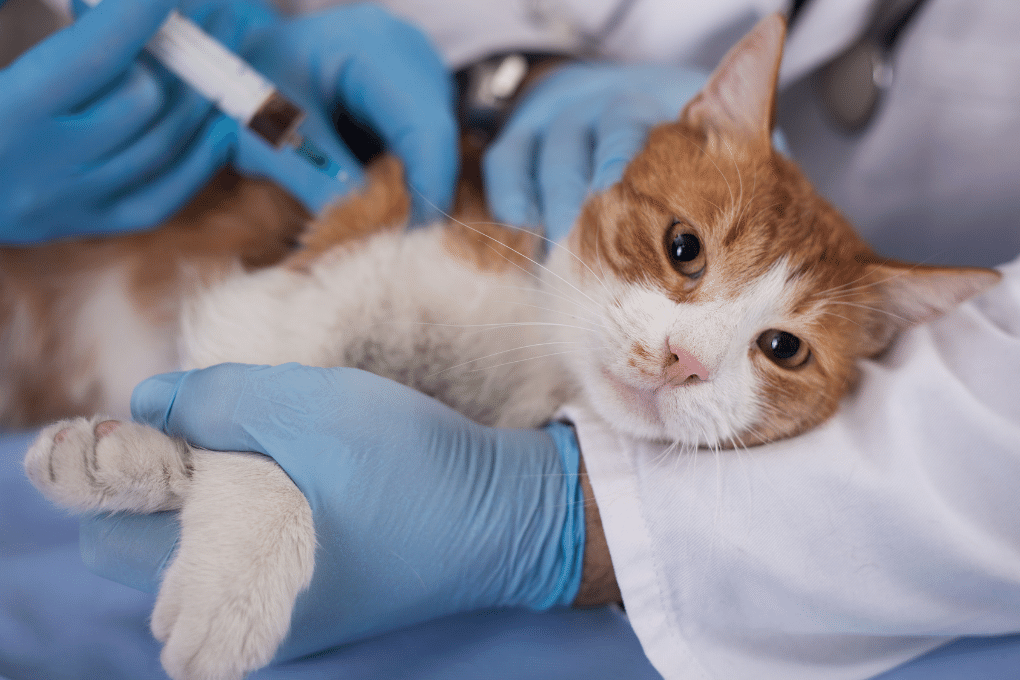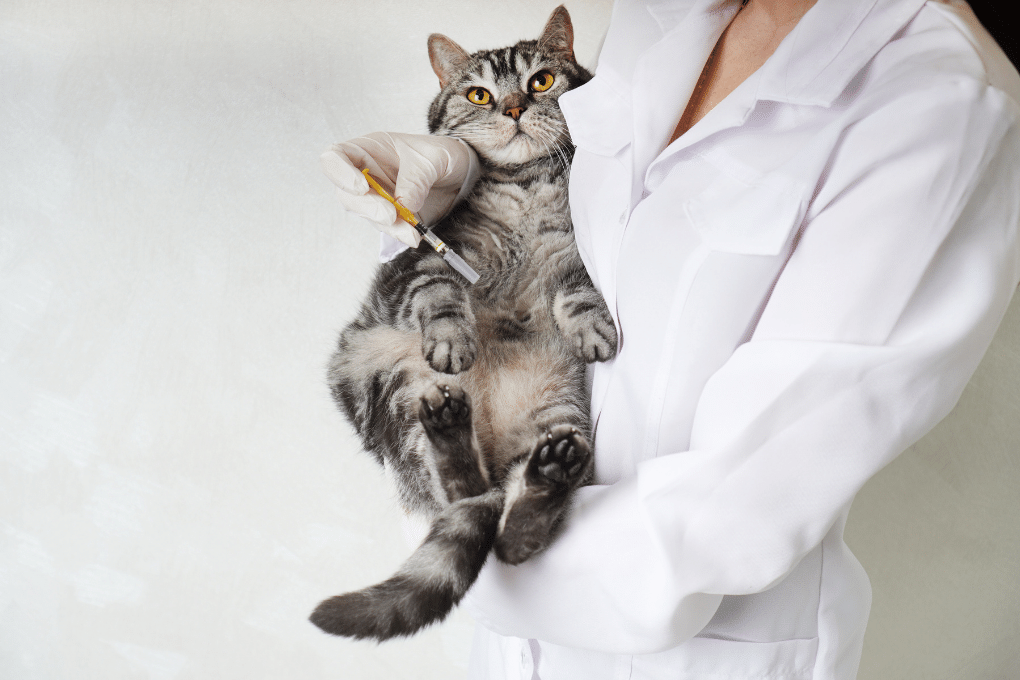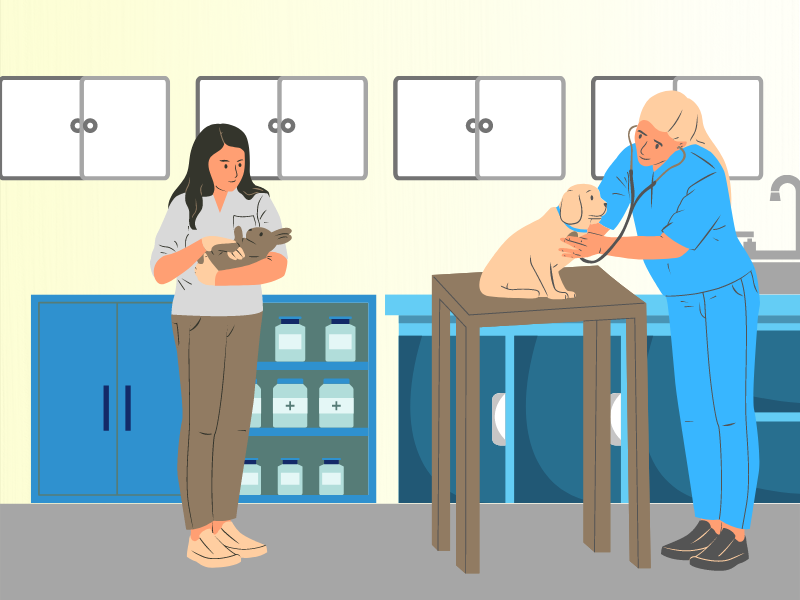Cat Vaccinations Near Me
Why Vaccinate Cats and Kittens?
Vaccinations are essential for cats. Within a few weeks of life, kittens lose their natural resistance to breast-acquired diseases and sooner or later will almost certainly be exposed to some kind of infection. Grooming, sharing litter boxes and bowls, and fighting or many other ways are part of a cat's daily routine.
Vaccination is an important first step in significantly reducing your cat's risk of becoming seriously ill or dying from the disease. After that, regular annual boosters can give him the protection he needs and deserves for the rest of his life.

Diseases Vaccines Treat
Modern vaccines are the result of extensive research. These vaccines are manufactured to standards as stringent as those required to manufacture vaccines for human use. With such a safe and effective vaccine readily available, it makes sense to protect your cat as soon as possible.
Feline viral infectious respiratory disease
There are two main viruses that cause what is commonly called "cat flu". These are feline rhinotracheitis and feline calicivirus, which are prevalent in the UK cat population throughout the year. Feline flu is spread very easily through direct and indirect contact between cats. Cats that attend shows or are housed on vacation are particularly at risk because they are placed in close proximity to each other.
Symptoms of the disease include a runny nose, watery eyes, sneezing, coughing and lethargy. With timely treatment, feline flu is rarely fatal, but it can make your cat sick for a while, leaving them with runny noses and trouble breathing for the rest of their lives.
Panleukopenia in cats
Commonly known as "enteritis," this disease comes out every few years. It is highly contagious and can affect cats of all ages, but it is most common and serious in kittens. It causes acute depression, vomiting, diarrhoea, and dehydration, and is often fatal. The few cats that survive the disease are prone to other diseases due to immune system damage.
The virus that causes feline enteritis can remain active in the environment for a very long time and is easily spread through contact with infected cats and their saliva, urine, and faeces.
Feline Leukaemia
Feline leukaemia is a very serious, incurable disease that can take months or even years to fully develop and is now considered the leading cause of infectious death in cats in the Western world. Cats of all ages can be affected, especially cats up to 3 years of age. Symptoms range from damage to the immune system to a "significantly reduced ability to fight other infections" to damage to the immune system. For persistent anaemia and cancer.
When symptoms appear, your cat will almost certainly die, but even a seemingly healthy cat can carry the leukaemia virus and pass it on to others if they share food or water bowls or are bitten during a fight.
When Should Your Cat be Vaccinated?
First vaccination
Previously unvaccinated kittens will require a series of primary vaccinations at 2-4 week intervals. Kittens can start vaccination from 9 weeks of age.
An adult cat who has not been vaccinated in the past 15 months should have her course of two injections.
Basic immunity is cured with two vaccinations. The first vaccination provides a low level of immunity and "primes" the immune system. Completing the course with a second vaccination boosts immunity to a full level of protection.
If you have or have an older kitten or cat that has not been vaccinated or whose vaccination history is unknown, register for vaccination as soon as possible. This also allows new pets to undergo a general veterinary check-up. Keep in mind that vaccinations don't provide immediate protection, and your vet will let you know when your cat is protected and ready to go outside. booster
Immunity to these diseases does not last indefinitely and gradually wears off, putting your cat at risk. One booster (injection) every 12 months is important to maintain immunity. This will protect your cat from these infections and give you an opportunity for a wellness check.
All cats vaccinated at Local Vets receive a free wellness check after six months to ensure your pet is in the best possible condition. Immunisation protocol
Once your cat's basic vaccinations are complete, you will receive an index card with vaccination dates and information about upcoming boosters. A kennel or training course will almost certainly require this before accepting a cat. Remember to bring this card with you to the clinic each time your cat is vaccinated so it can be renewed.
What is immunity?
If a pet (or person) is immune to a particular disease, it means there is little or no risk of contracting that disease. An adult cat's immunity may be the result of routine vaccinations, or the cat may have contracted (and survived) the disease.
What about kitten immunity?
If the mother has immunity, the kittens are usually protected by the immunity in their milk for the first few weeks of life. However, immunity weakens over time, making kittens more susceptible to infections. At this point, vaccination simply takes over the mother's protective functions.

Services We Offer

Contact your Local Vets Halesowen
http://+441217168000Halesowen
Call us: 0121 296 7776 (24 hours)
Email us: info@localvets.co.uk
Pay us a visit
Local Vets (Halesowen), Bromsgrove Road, Halesowen, West Midlands, B63 3JJ
Phone: 0121 296 7776
Monday: 9am – 6pm | Tuesday: 9am – 6pm | Wednesday: 9am – 6pm | Thursday: 9am – 6pm | Friday: 9am – 6pm | Saturday: 9am – 5pm
Oldbury
Call us: 0121 716 8000
Email us: info@localvets.co.uk
Pay us a visit
LocalVets LTD (Oldbury) , Wolverhampton Road, Oldbury, West Midlands, B69 2BH
24 Hour Line: 0121 716 8000
Monday: 9am – 6.30pm | Tuesday: 9am – 6.30pm | Wednesday: 9am – 6.30pm | Thursday: 9am – 6.30pm | Friday: 9am – 6.30pm | Saturday: 9am – 5pm | Sunday: Emergencies Only

